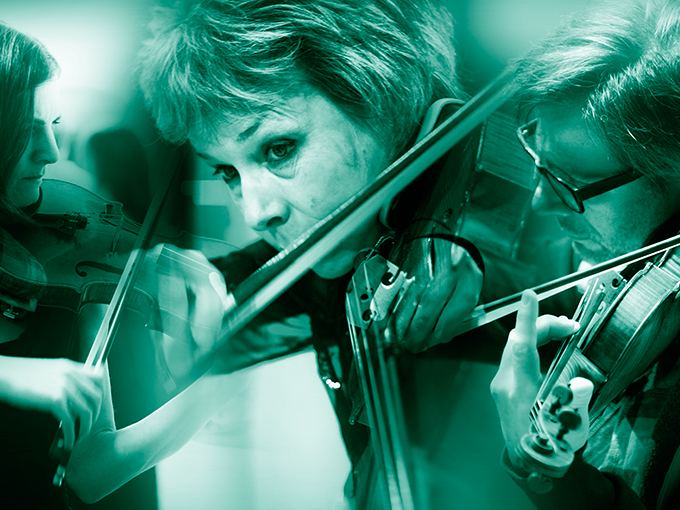In the key of G, five Scottish Ensemble musicians take you from minor to major as we get intimate with the quintet form.
G minor has long been associated, in Mozart’s work, with agitation, anguish and desperation (look to his 40th Symphony or his first Piano Quartet for evidence). This quintet is no different, sinking as it does into an out-of-character contemplative melancholy. With the addition of the extra viola adding that essential extra flesh, it’s easy to see why this and Mozart’s five other quintets are considered so spectacular, paving the way for the romantic model…
…the model that was perfected and, arguably, transcended by Brahms, whose second quintet was intended as his last ever work. His Opus 111, he claimed, had said all he could as a composer and no more works should be expected. From the rich orchestral fullness of its first movement to the Slavonic gypsy rhythms of the fourth, it’s a difficult claim to refute.
Glasgow-born composer Martin Suckling’s Nocturne is something different altogether: its feather-light, ethereal, lingering slides and tones will stay with you long after the performance ends.
- Mozart
String Quintet No.4 in G minor, K516 - Brahms
String Quintet No.2 in G major, Op.111 - Martin Suckling
Nocturne for Cello and Violin* -
*Musselburgh, Shetland and Aberdeen only

